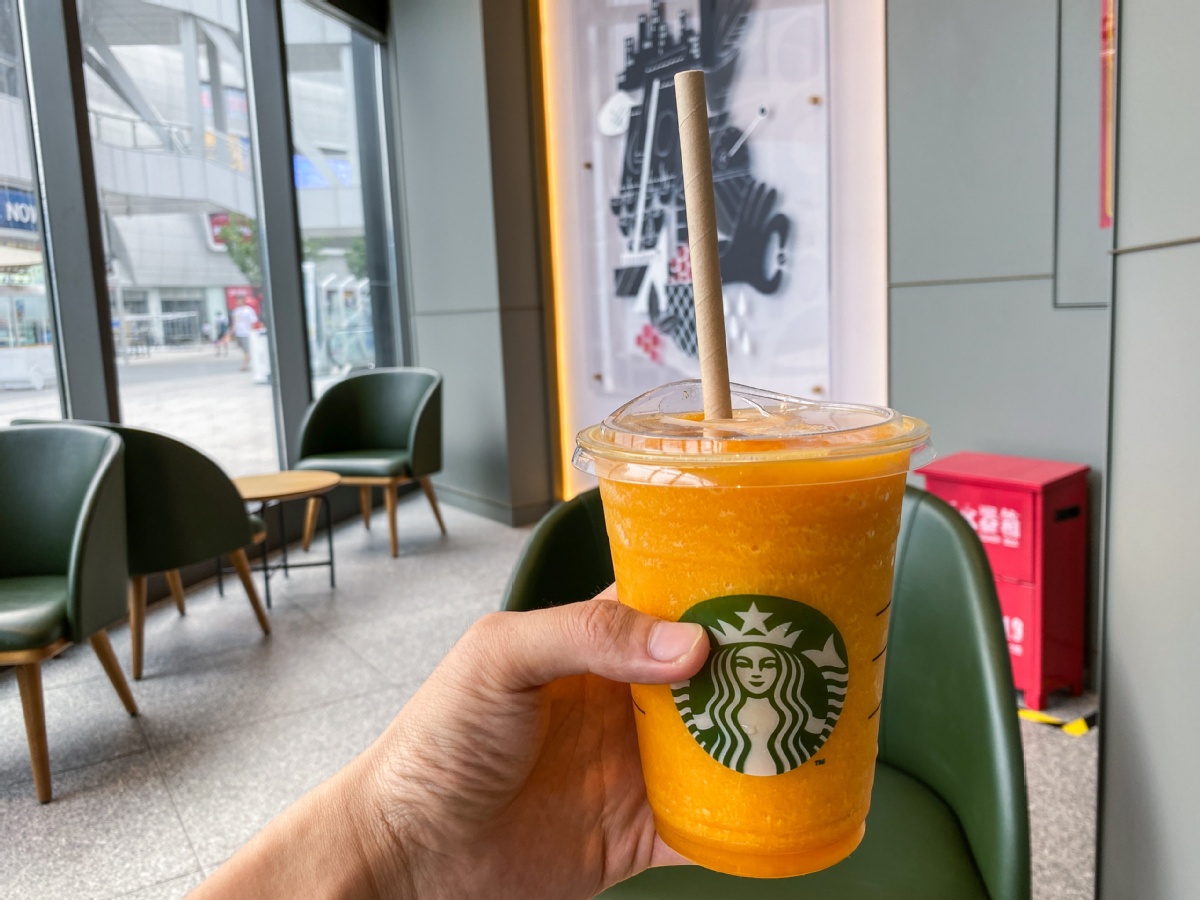Straws going green amid ecological concern


Huang Xinyi, a 30-year-old white collar worker in Beijing, said she prefers buying drinks, especially bubble teas, from brands that offer PLA straws. "It tastes much better than paper straws. Paper straws have a papery or cardboard-like flavor and cannot be soaked into drinks for a long time. That said, I need to finish the drinks soon after I open them. But such situations do not happen with PLA straws."
According to a report by Beijing Youth Daily, despite PLA straws offering better taste for consumers, a majority of caterers still choose paper straws, as the cost of the former is about 60 percent higher than the latter.
Some other brands, including McDonald's China branches, came up with the solution of lids from which consumers can drink directly. Over 90 percent of KFC outlets also removed plastic cutlery in both dine-in and delivery services, and promoting the use of wooden spoons.
Another popular alternative is collapsible metal straws that are also reusable. They can be as long as 23 centimeters when stretched out full, and can also be as short as 10 centimeters. This makes them convenient for consumers to take wherever they go. The collapsible metal straws are sold packaged in small boxes which makes them more portable.
"The market of alternatives to plastic products is just starting in China, with the focus being developing new counterparts that are not harmful to the environment and customer-friendly without costing a lot of money. It is a trend that China will phase out environmentally unfriendly plastic products in the near future," Lin said.
China has been in a battle against plastic waste for a long time. Back in 2008, the government imposed limits on the use of plastic bags. Starting from that time, supermarkets and grocery stores have been prohibited from giving out free plastic bags to customers.
Plastic bags were also mentioned in last year's plastic restrictions. Aside from banning single-use plastic straws, restrictions rolled out last year also banned the production and sale of a slew of other plastic products including ultrathin plastic shopping bags with a thickness of less than 0.025 millimeter and plastics containing medical waste.
Plastic bags are another focus of attention in battling plastic waste. According to data from the China Plastic Processing Industry Association, the average annual use of plastic bags surpassed 4 million tons as of 2019, and China was seeing a surging number of plastics used in food delivery services and logistics. The average annual consumption of plastics for logistics reached about 1.8 million tons, while that of food delivery was about 500,000 tons.
Last year's restrictions also put a limit on the use of products, including non-disposable plastic bags and packages in general and single-use plastic utensils.
The restrictions were part of the Chinese government's stepped-up efforts to control plastic pollution. The goal is to set up a management system for the production, circulation, consumption, recycling and disposal of plastic products, beef up development of sustainable alternatives to plastics, reduce the amount of plastic garbage in landfills and effectively control plastic pollution by 2025.
- Chinese researchers reveal responses of desert ecosystems to climate change
- Virus likely to slightly rebound throughout the world
- From local to global -- Xi Jinping's devotion to anti-poverty causes
- Four key takeaways from Xi's southwestern tour
- Chinese miracle in poverty alleviation worthy of emulation by world




































